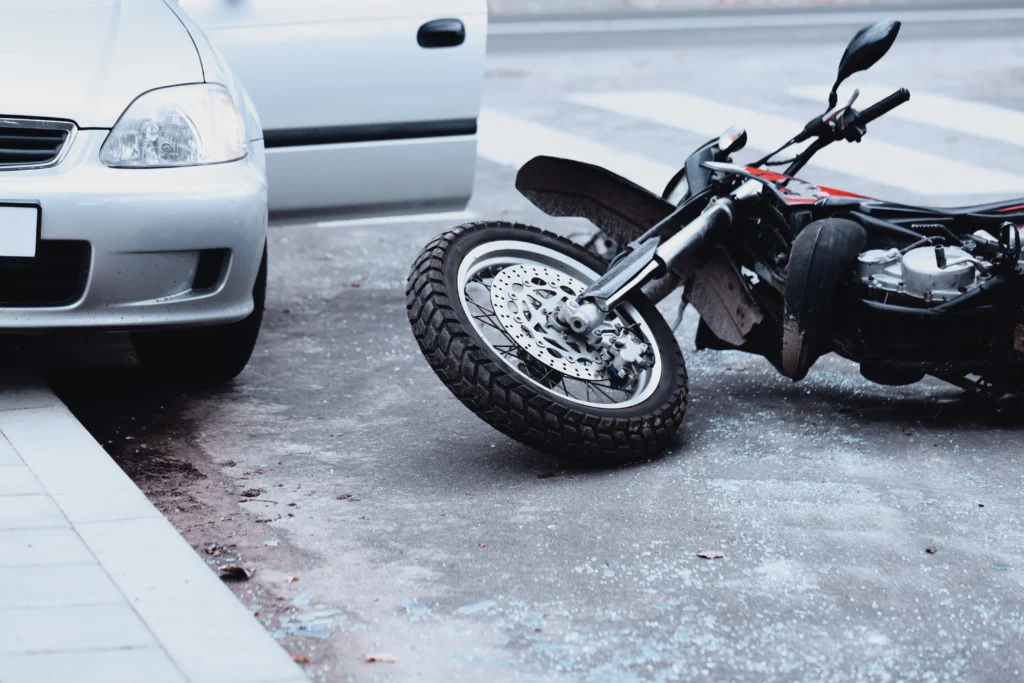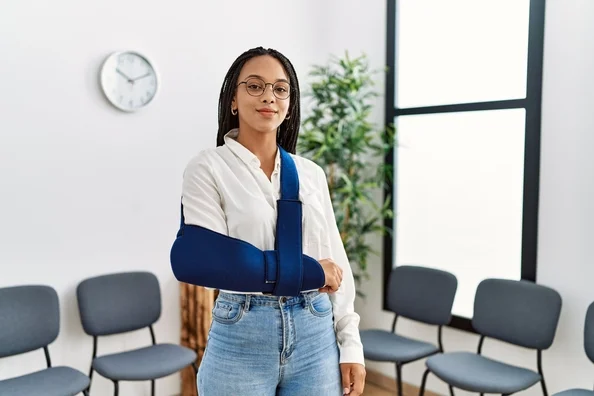Compassionate and Relentless Tacoma Brain Injury Attorneys Fighting for TBI Survivors
A traumatic brain injury can change your life in an instant. In Tacoma, these injuries frequently occur in car crashes along I-5, pedestrian incidents near Pacific Avenue, and slip and fall accidents in residential or commercial areas. The consequences are often devastating, affecting not only physical health but also cognitive function, personality, and overall quality of life. Victims may face prolonged rehabilitation, permanent disability, and overwhelming financial strain.
At Bernard Law Group, we understand the full scope of what a traumatic brain injury means for Tacoma residents. We’ve spent decades fighting for those injured due to another party’s negligence, whether from a distracted driver, a negligent property owner, or unsafe workplace conditions. If you or someone you love suffered a TBI in Tacoma, you have legal rights. Our team is here to protect those rights and pursue maximum compensation for your recovery.
Contact our office at (206) 312-3908 or visit our contact page to schedule a free case review. We never charge fees unless we win your case.
Common Causes and Long-Term Effects of Traumatic Brain Injuries in Tacoma
Traumatic brain injuries are among the most severe and complex medical conditions sustained in personal injury cases. In Tacoma, these injuries often result from high-impact accidents involving vehicles, unsafe property conditions, or sudden falls. While the initial trauma may happen in seconds, the consequences often last a lifetime. Understanding the primary causes of traumatic brain injuries in Tacoma, as well as the potential long-term effects, is essential for both prevention and legal recovery.
According to the Centers for Disease Control and Prevention, approximately 223,000 people were hospitalized in the United States with TBI-related injuries in 2019. These injuries result in long-term disability in many cases and are a significant contributor to death and permanent impairment nationwide. The CDC’s TBI resource center offers data, treatment guidance, and prevention strategies for those affected by brain trauma.
How Car Accidents Commonly Lead to Brain Injuries in Tacoma
Motor vehicle collisions are one of the leading causes of traumatic brain injuries throughout Pierce County. Whether the crash occurs on high-speed corridors like Interstate 5 or at congested intersections along Pacific Avenue, victims are frequently subjected to sudden deceleration forces that cause the brain to shift inside the skull. Even with airbags and seatbelts, a forceful impact can result in concussions, brain bleeding, or diffuse axonal injury.
Data from the Washington Traffic Safety Commission shows that Pierce County experiences hundreds of serious injury crashes annually, with a significant portion involving head trauma. When a negligent driver causes a crash, they may be held financially accountable for any resulting brain injuries. To better understand the risks of head trauma in collisions, the National Highway Traffic Safety Administration provides in-depth resources on injury mechanics and vehicle safety.
Rear-End Collisions and Whiplash-Induced Brain Damage
Even a moderate-speed rear-end crash can cause a victim’s head to snap forward and backward violently. This motion, often associated with whiplash, can also result in a concussion or closed-head injury. These TBIs may not show up on imaging scans, yet they can significantly affect cognition, mood, and quality of life. Victims experiencing symptoms like confusion, dizziness, or nausea after a crash should seek immediate evaluation at a trauma center like MultiCare Tacoma General Hospital.
Rollover Accidents and Open Skull Injuries
Rollover crashes are among the most dangerous accident types in Tacoma. Victims thrown from the vehicle or struck by debris may suffer open-skull fractures and penetrating brain trauma. These injuries often require emergency surgery and intensive care. The American Association of Neurological Surgeons outlines surgical treatment options and post-injury rehabilitation for such catastrophic outcomes.
Falls on Unsafe Property and the Risk of Brain Trauma
Falls are another major cause of traumatic brain injuries in Tacoma. Slip and fall incidents occur frequently in retail establishments, apartment complexes, and public walkways. Property owners are legally obligated to maintain safe conditions under Washington premises liability law. When they fail to fix broken stairs, icy sidewalks, or poorly lit hallways, visitors are placed at extreme risk.
According to the Centers for Disease Control and Prevention, falls are the leading cause of TBIs among older adults. The CDC’s Older Adult Falls Prevention page offers important insights into how head injuries happen during a fall and what treatment and prevention strategies exist. In Tacoma, the risk is particularly high during the rainy season when surfaces become slick and visibility decreases.
Unmaintained Stairways in Rental Complexes
In many Tacoma apartment buildings, stairwells lack adequate lighting or sturdy handrails. A sudden fall on a hard concrete landing can lead to a skull fracture or internal bleeding within the brain. When a landlord or property manager fails to correct known hazards, they may be liable for resulting brain injuries. The Washington State Attorney General’s Landlord-Tenant Guide outlines the duties of property owners to maintain safe common areas.
Icy Parking Lots and Dangerous Winter Conditions
Tacoma’s winter weather brings additional risks for falls. Ice and snow accumulate in parking lots, walkways, and steps outside commercial businesses. If a business fails to salt icy surfaces or warn visitors, serious injury can result. The Washington State Department of Labor & Industries provides winter safety recommendations for employers and property owners, which can be found on their slip, trip, and fall prevention resource page.
How Brain Injuries Impact Victims in the Long Term
The long-term effects of a traumatic brain injury vary depending on severity, location, and timeliness of treatment. While some victims recover with rest and therapy, others face permanent impairments that alter every aspect of their lives. The National Institute of Neurological Disorders and Stroke details the neurobiology of brain injury and long-term rehabilitation options at NINDS.gov.
Cognitive Deficits and Memory Loss
Many TBI survivors in Tacoma struggle with memory issues, attention span, and executive function. These impairments make it difficult to return to work, manage finances, or live independently. Memory rehabilitation, speech therapy, and occupational training may help, but recovery is often incomplete. The Mayo Clinic’s TBI overview explains the spectrum of symptoms associated with cognitive injury.
Emotional and Behavioral Changes
Traumatic brain injuries frequently damage the brain’s frontal lobe, leading to emotional instability, impulsivity, and personality changes. Families often report that their loved one is “no longer the same person” after a serious head injury. This can strain relationships, lead to depression, and require ongoing mental health care. The Brain Injury Association of America offers support resources and clinical tools at BIAUSA.org.
Financial Impact and Loss of Earning Capacity
The financial burden of a TBI is often staggering. Medical bills, therapy costs, and lost income can cripple families already struggling to adjust to life after a serious injury. According to the Centers for Medicare & Medicaid Services, long-term care for severe brain injuries may exceed hundreds of thousands of dollars per year. In many cases, legal action is necessary to recover compensation that ensures access to adequate medical care.
Who Can Be Held Liable for a Traumatic Brain Injury in Tacoma
Determining liability is one of the most important steps in any traumatic brain injury case. Washington follows a fault-based system, which means that the party responsible for causing the injury must also cover the resulting damages. In Tacoma, traumatic brain injuries can arise from car crashes, unsafe premises, worksite accidents, or even defective products. In each of these cases, identifying who caused the injury and proving their negligence is essential for financial recovery.
At Bernard Law Group, our attorneys conduct thorough investigations into how each injury occurred. We work with accident reconstruction experts, medical professionals, and legal analysts to pinpoint every liable party. Whether it’s a distracted driver, a negligent property owner, or a government entity responsible for roadway hazards, we fight to ensure that victims receive the full compensation they are entitled to under Washington law.
To learn more about negligence and personal injury law in the state, the Washington State Bar Association offers general legal guidance for injury victims, including resources on comparative fault and damages.
Liability in Motor Vehicle Accidents Involving Brain Injuries
In many Tacoma cases, a traumatic brain injury results from a car, truck, motorcycle, or pedestrian accident. The party who caused the crash, often by speeding, texting, or failing to yield, may be held financially responsible for the victim’s medical care, lost wages, and long-term suffering.
Washington law, under RCW § 46.61.400, mandates that all drivers operate their vehicles at a safe speed and with reasonable care. Violating this duty and causing a crash that results in a brain injury opens the door to a personal injury claim.
Distracted or Impaired Driving and Legal Responsibility
Distracted driving remains one of the most dangerous behaviors on Tacoma roads. The Washington Traffic Safety Commission notes that distraction contributes to more than one in four serious crashes across the state. Texting, adjusting navigation systems, and talking on handheld phones all reduce reaction time and attention. For crash data and public safety campaigns, visit the Washington Traffic Safety Commission.
Impaired driving is also a leading cause of catastrophic accidents in Pierce County. Drivers under the influence of alcohol or drugs often fail to react appropriately to traffic signals, pedestrians, and stop signs. The National Highway Traffic Safety Administration provides information on the dangers of impaired driving and its correlation with traumatic brain injuries.
Premises Liability in Slip and Fall Brain Injury Cases
Tacoma property owners are legally required to maintain safe conditions for visitors and tenants. When someone slips, trips, or falls due to a known hazard like a wet floor, uneven stairs, or icy sidewalk and suffers a traumatic brain injury, the property owner may be held liable under premises liability law.
Washington’s RCW § 4.24.210 outlines the responsibilities of landowners to maintain safe environments for guests. Business owners, landlords, and government agencies can be held accountable when they ignore dangerous conditions that lead to preventable injuries.
Dangerous Walkways and Inadequate Lighting
Falls on sidewalks, stairwells, or entryways are a common source of TBIs. In older parts of Tacoma, like Hilltop or Lincoln District, many buildings lack adequate lighting or handrails. In wet weather, slick tiles and unmaintained surfaces pose serious threats. When these conditions are not addressed, the law may find the property owner negligent. The Federal Highway Administration provides guidance on safe pedestrian infrastructure and the role of lighting in accident prevention.
Landlord Negligence and Renter Protections
Tenants in Tacoma are protected by the Washington Residential Landlord-Tenant Act. This law requires landlords to keep shared areas like staircases, hallways, and entrances reasonably safe and well-lit. When they fail to act on complaints or known hazards and a fall causes a head injury, they may be liable for the resulting medical bills and long-term care costs.
Workplace Injuries and Employer Liability
In certain cases, traumatic brain injuries occur on the job. Construction workers, delivery drivers, and warehouse employees in Tacoma are particularly vulnerable to head trauma due to falling objects, heavy machinery, or slips on unmaintained surfaces. When this happens, the case may involve both a workers’ compensation claim and a third-party personal injury lawsuit.
Washington’s Department of Labor & Industries outlines the state’s workers’ compensation system, which provides basic medical and wage-replacement benefits. However, these claims often fall short of covering the full cost of a traumatic brain injury.
When Third Parties Are Involved in Worksite Injuries
Not all worksite accidents are the employer’s fault. If a subcontractor, equipment manufacturer, or property manager caused or contributed to the dangerous condition, they may be held liable through a third-party claim. This allows the injured worker to recover additional damages not available under standard workers’ compensation rules.
The Occupational Safety and Health Administration reports that brain injuries on construction sites often result from preventable hazards like unsecured ladders, unsafe scaffolding, and dropped tools. OSHA safety violations frequently serve as key evidence in personal injury litigation.
Government Liability in Public Property TBI Cases
When a traumatic brain injury occurs on city-owned property or results from dangerous road conditions, the government entity responsible may be sued for negligence. In Tacoma, this could include the City of Tacoma, Pierce County, or the Washington State Department of Transportation. These cases involve special rules and shorter deadlines, so it is critical to act quickly.
Under Washington law, you must first file a tort claim with the appropriate agency before bringing a lawsuit. The Washington State Office of Risk Management explains how to submit claims against public entities for injury due to negligence.
Poor Road Maintenance and Hazardous Intersections
Poorly maintained roads, broken crosswalk signals, and potholes are all factors that contribute to traumatic brain injuries in Tacoma. If a known issue goes unaddressed and leads to an accident, the responsible agency may share in the legal liability. Public records, maintenance logs, and traffic reports often serve as critical evidence in these cases.
The National Association of City Transportation Officials advocates for improved street design and pedestrian protections, including safer intersections and speed reduction measures strategies that could prevent many of Tacoma’s TBI-causing crashes.
What Compensation Is Available After a Traumatic Brain Injury in Tacoma
A traumatic brain injury is one of the most costly and disruptive types of personal injury a person can suffer. In Tacoma, victims often face a future filled with medical appointments, physical limitations, emotional trauma, and financial uncertainty. Under Washington law, individuals who suffer TBIs due to another party’s negligence may be entitled to full compensation for both their economic losses and their non-economic suffering. These damages are intended to help victims rebuild their lives, afford the care they need, and restore as much independence as possible.
Calculating damages in a brain injury case requires careful legal and financial analysis. At Bernard Law Group, our attorneys work with neurologists, life care planners, economists, and vocational experts to ensure that every cost, both immediate and long-term, is accounted for. We leave no part of a victim’s experience unconsidered.
For general guidance on how damages are assessed in Washington civil cases, the Washington State Legislature outlines statutory definitions and procedural considerations related to personal injury compensation.
Economic Damages for Medical Bills and Future Care Needs
Economic damages compensate victims for actual, measurable financial losses. For those with traumatic brain injuries, these losses are often substantial. Medical expenses begin immediately with emergency room visits and ambulance fees, but they do not end there. Victims may require intensive rehabilitation, medication, assistive devices, in-home care, and specialized therapies for months or years to come.
According to the National Library of Medicine, lifetime care costs for a severe TBI can exceed $3 million. Rehabilitation facilities such as MultiCare Tacoma General and the CHI Franciscan Health system provide advanced neurotrauma care, but services come at a high cost and are rarely fully covered by insurance.
Ongoing Rehabilitation and Occupational Therapy Costs
Many brain injury victims in Tacoma must undergo prolonged physical, speech, and occupational therapy. These services are essential for regaining function, communication, and basic independence. Outpatient neurorehabilitation may continue for years, and even then, full recovery is not always possible. The Brain Injury Association of America provides a national directory of resources and facilities for TBI rehabilitation, which may help families understand the scope of necessary care.
Lost Wages and Loss of Future Earning Capacity
In addition to medical expenses, traumatic brain injury victims often lose the ability to work. Some may be permanently disabled, while others can return to employment only with significant limitations. In Washington, victims may recover compensation not only for current lost income but also for future earnings they are no longer capable of earning. This is known as “loss of earning capacity.”
Economists and vocational specialists help establish how much income a person would have made over a lifetime had the injury not occurred. The U.S. Bureau of Labor Statistics is frequently used in these analyses to provide regional wage averages and occupational forecasts.
Non-Economic Damages for Pain, Suffering, and Emotional Loss
While economic damages are relatively straightforward to quantify, non-economic damages capture the true human cost of a traumatic brain injury. These damages are awarded for the pain, suffering, and life disruptions that victims endure. In Washington, there is no statutory cap on non-economic damages in personal injury claims, meaning a jury can award any amount it deems appropriate based on the circumstances of the case.
The Washington Courts Self-Help Center provides basic legal guidance on personal injury claims and includes forms and references related to damages and trial procedures.
Pain and Suffering Caused by Brain Injury Symptoms
Living with a traumatic brain injury often means enduring chronic headaches, confusion, speech impairments, mood swings, and loss of independence. These symptoms not only limit physical activity but also severely impact emotional well-being. The American Psychological Association has documented the psychological toll of brain trauma, noting that many TBI patients experience depression, anxiety, and PTSD as a result of their injuries.
Loss of Enjoyment of Life and Personal Relationships
Traumatic brain injuries can interfere with every aspect of life, from playing with children to enjoying hobbies, traveling, or maintaining a romantic partnership. When victims can no longer engage in activities that once brought them joy, the law provides a remedy through non-economic compensation.
Families may also experience a loss of consortium, which refers to the impact the injury has on relationships, including the loss of affection, companionship, and intimacy between spouses or partners. Courts in Washington recognize these losses as part of the non-economic damages package when supported by evidence and testimony.
Punitive Damages in Rare TBI Cases Involving Gross Negligence
Although Washington law generally does not allow punitive damages in standard negligence claims, they may be awarded in cases involving fraud, malice, or reckless disregard for human safety. For example, if a trucking company knowingly sent an unqualified driver onto the road who caused a catastrophic crash, or if a construction firm ignored multiple OSHA violations that led to a fall, the court may allow additional damages to punish the offender.
The Cornell Legal Information Institute offers a national legal overview of punitive damages and the standard for awarding them in civil cases.
Why Legal Representation Is Essential to Recover Full Compensation
The process of securing compensation after a traumatic brain injury is never simple. Insurance companies frequently undervalue brain injury claims, often arguing that symptoms are exaggerated, unrelated to the accident, or preexisting. Without legal representation, victims are unlikely to receive the full amount they deserve.
At Bernard Law Group, our Tacoma personal injury attorneys document every detail, consult with leading experts, and push back against insurance tactics. We handle all legal aspects of the claim, from collecting records and calculating damages to negotiating with insurers and going to trial when necessary.
For additional insight on dealing with insurance after an injury, the National Association of Insurance Commissioners provides consumer tools and guidance on navigating coverage disputes.
Contact a Tacoma Traumatic Brain Injury Lawyer Today
If you or someone you love has suffered a traumatic brain injury in Tacoma, you do not have to face the medical, legal, and financial challenges alone. The physical pain, emotional trauma, and uncertainty about the future are overwhelming, but help is available. At Bernard Law Group, we understand what you’re going through, and we are here to fight for the justice and compensation you deserve.
Our legal team has decades of experience handling serious brain injury cases across Washington. We know how to build powerful claims, prove liability, and negotiate with insurance companies that try to delay or deny your rightful recovery. Whether your injury resulted from a car crash on I-5, a fall in a local apartment complex, or a workplace accident in the Port of Tacoma, we are prepared to advocate for you every step of the way.
Schedule a free, no-obligation consultation today by calling (206) 312-3908 or visiting our contact page. We never charge legal fees unless we win your case.
Don’t wait. The sooner you speak with an experienced Tacoma traumatic brain injury lawyer, the sooner you can begin your path to recovery and peace of mind.
Practice Areas
Trust Us With Your Personal Injury Claim
If you or a loved one have been injured, Bernard Law Group will fight for you every step of the way. We will give our all to secure the compensation you rightfully deserve.
Contact usfor a free consultation.
Phone: (206) 312-3908









